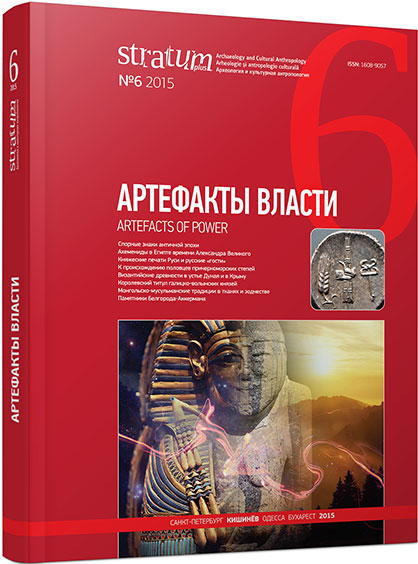«Гости» в социальной системе Древнерусского государства: государственные служащие?
“Gosty” in the Social System of the Ancient Russian State: Public Servants?
Author(s): Sergey A. SalminSubject(s): History, Economic history, Social history, Middle Ages, Modern Age, 6th to 12th Centuries, 13th to 14th Centuries, 15th Century, 16th Century, 17th Century
Published by: Издательский дом Stratum, Университет «Высшая антропологическая школа»
Keywords: Ancient Russian state; Byzantium; foreign trade; diplomatic relations; “guest”; merchant; πραγματευτής; a business representative
Summary/Abstract: The article deals with the history of the term gosty ('guest') during the whole period of its existence (the 9th—17th centuries). Basing on the information analyzed, the author affirms that contrary to the prevailing historiographical tradition, the term did not change its meaning throughout the considered time period.As early as in the 9th—10th centuries “guests” were business representatives and trade and fiscal agents of the government and high-ranking individuals, as was reflected in the application of the Byzantine term “πραγματευτής” to the term “guest” (Constantini Porphyrogeniti imperatoris. De Ceremoniis aulae Byzantinae).The choice of the sixteenth century as the turning point when the “guests” ceased to be mostly merchants and became fiscal agents of the government seems erroneous. The mistake should be most probably associated with an incorrect translation of sources, when the perception of the synonymous usage of the words “guest” and “merchant” had led to the distorted meaning of the text.
Journal: Stratum plus. Археология и культурная антропология
- Issue Year: 2015
- Issue No: 6
- Page Range: 43-52
- Page Count: 10
- Language: Russian
- Content File-PDF

